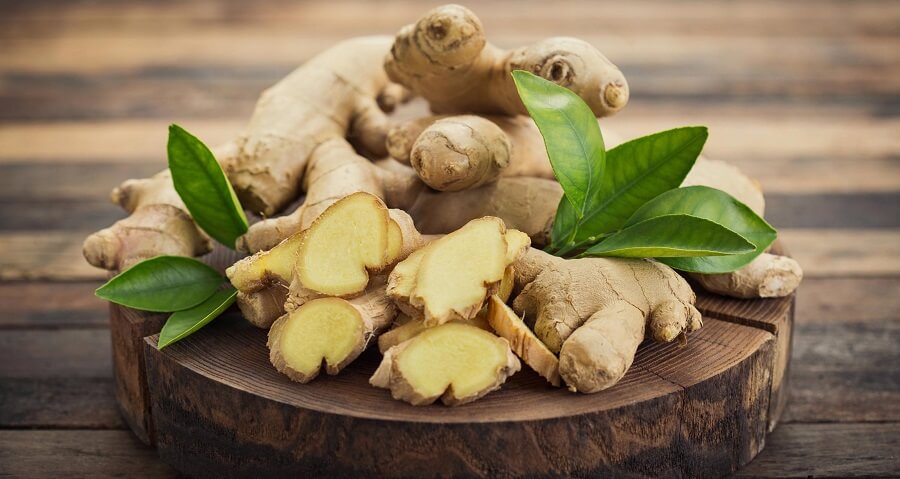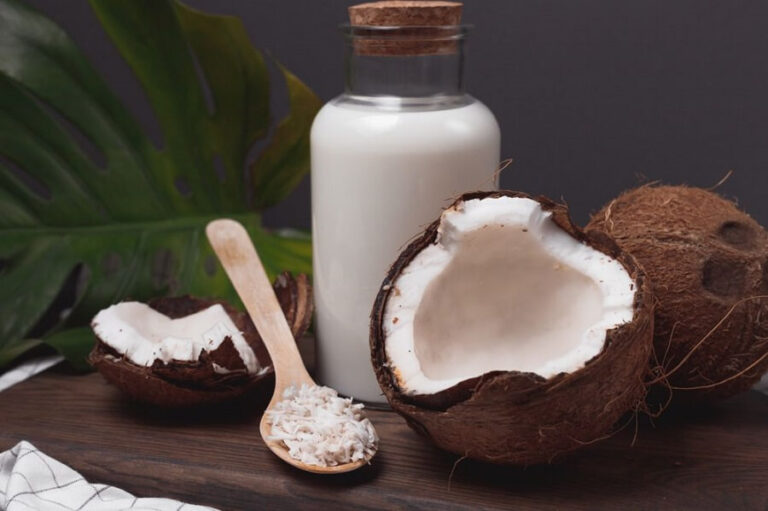Ginger has been used in cooking and alternative medicine since ancient times. Some of the traditionally known benefits of ginger are as a natural solution for colds and nausea and as an antibacterial.
Research today suggests that ginger may have potential uses as a treatment to relieve inflammation, relieve menstrual cramps and arthritis symptoms, and strengthen the immune system.
This article details ginger’s uses, benefits, and contraindications, backed by scientific evidence.
What is ginger?
Ginger ( Zingiber officinale ) is a plant of the Zingiberáceae family. Ginger is a relative of galangal, cardamom, and turmeric.
The ginger plant can reach up to 90 cm in height, and its leaves are up to 20 cm long.
Ginger is believed to have been one of the first spices brought to Europe from Asia. Its first uses were treatments for diseases in ancient Greece and medieval Europe. Today, the rhizomes of the ginger plant are used in most kitchens around the world.
Ginger is usually used fresh, although dried ginger powder or even in the form of dietary supplements can also be added.
Ginger benefits
Scientific research has confirmed the health benefits and properties of ginger. In particular, taking doses of 1-3 g of powdered ginger has been shown to alleviate symptoms of nausea (both during pregnancy, dizziness, and even chemotherapy). (1,2,6)
The benefits of ginger are mainly attributed to the bioactive component of gingerol.
Other benefits of ginger are that it helps fight inflammation in the body and reduces menstrual pain and muscle pain. (1,3,5)
One of the effects of the active ingredient in ginger (gingerol) has been shown to inhibit the activity of COX-1, the same enzyme that aspirin acts. Studies claim that gingerol is more potent than aspirin and has antiulcer activity. (5)
As for the benefits of ginger for colds, they apply only when it is fresh. A study has proven that some components of ginger are capable of isolating and preventing the spread of certain types of viruses. (4)
The benefits of ginger are:
- Reduce nausea and vomiting
- Relieve inflammation in the body
- Relieve muscle, headache, and menstrual pain
- Isolate certain types of viruses
- May reduce arthritis symptoms.
Ginger uses
Traditionally, ginger tea has been used in traditional Chinese medicine to treat colds (especially coughs and colds). A good combination for colds is an infusion with pieces of fresh ginger root with lemon and honey.
In this case, the benefits are not only due to the gingerol but mainly to the warming and expectorant effect.
In addition, ginger can also be used fresh: finely chopped root is added to salads, soups, and various Asian dishes. It has a distinctive spicy flavor and pairs well with other seasonings and sauces, especially teriyaki sauce.
As a sports supplement, one of the uses of ginger in capsules is to relieve dizziness and vomiting in pregnant women. Also, you can take 2-4 g of powder per day to reduce inflammation in the joints.
The uses of ginger are:
- As a spice for the kitchen
- In the form of cold tea
- As a dietary supplement for muscle pain
- Powdered or fresh to relieve dizziness and vomiting
Is ginger good for people with diabetes?
In animal studies, using ginger regularly lowered blood sugar and insulin levels (up to 35%). Theoretically, this may indicate that one of the benefits of ginger root is blood sugar values in people with diabetes.
However, human studies have not yielded similar results: the effects on insulin were minimal. (1.6)
While it can be said that one of the benefits of ginger is slightly reducing your appetite, hot ginger tea can be helpful if you are on a diabetic diet. There is insufficient evidence that ginger is used to regulate insulin levels in people with diabetes.
Contraindications
The use of ginger in moderate amounts is considered safe for most of the population.
However, since ginger can affect blood clotting, it should not be used in conjunction with blood thinners such as warfarin.
It is not recommended to combine it with aspirin, ibuprofen, diclofenac sodium, and other pain relievers. (3) Excess ginger is contraindicated for people taking medications to treat diabetes and high blood pressure.
As for safety for pregnant and lactating women, it is relative to its quantity. One of the benefits of ginger is reducing morning sickness. However, no studies ensure the effects on the fetus of an excess of this plant. So it is recommended to use it in moderation.
The contraindications of ginger are:
- Taking warfarin and other blood thinners
- Taking aspirin and other pain relievers that affect the COX-1 system
- People with diabetes on insulin treatments
How to make ginger tea for colds?
The easiest way to make ginger tea is to peel the fresh root (studies say the dried powder has no cold benefits). It must be finely chopped or grated, then added to water at 80 degrees, and wait about 5-10 minutes.
After removing from the heat, other elements can be added to the tea, such as lemon, cinnamon, and honey. When making ginger tea for colds, the key point is that the water temperature does not reach 100 degrees. Since it is the maximum temperature that its active component resists gingerol. (7)
It is essential to understand that ginger cannot cure infections caused by viruses.
However, studies have confirmed the benefits of ginger for colds. In studies, fresh ginger was most effective when given before viral infection. Fresh ginger inhibits viral binding; it could stimulate mucosal cells to secrete IFN-β, possibly helping to counteract viral infection. (8)
In addition, the study states that some components of ginger are capable of isolating and preventing the spread of certain types of viruses.
Ingredients for ginger tea:
- Green tea (1 sachet or 3 grams strands)
- Chopped ginger root – 9 g
- Water – 0.5 L
- Lime or Lemon – 2-4 slices
- Ground cinnamon – 1 pinch
- One tablespoon of honey (or stevia for people with diabetes)
ABSTRACT
- Ginger is a plant of Asian origin. It has been known for its medicinal and gastronomic uses since ancient times.
- Today, research has confirmed the health benefits of ginger, such as reducing nausea and vomiting and reducing inflammation, and it is considered a plant with antiviral properties.
- One of the most common uses for ginger is in the form of tea. In this form, it has additional benefits for colds.







